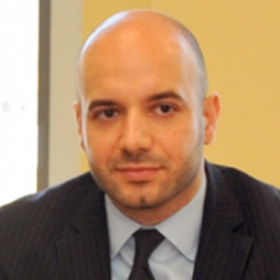
UN Workshop on Nuclear Disarmament
On September 1, 2011, the EastWest Institute and the Permanent Mission of Kazakhstan to the United Nations held a high-level workshop to examine how far the world has come towards eliminating nuclear weapons since 2010. Crowding into a packed room at the United Nations, UN representatives and members of the NGO community took an active role in the workshop, held to commemorate the International Day against Nuclear Tests.
“We need to give the world human security,” said Kazakhstan’s Ambassador to the UN Byganym Aitimova, who delivered the opening remarks. Kazakhstan, which destroyed its cache of Soviet-era nuclear weapons, has been a leader in global disarmament
While largely positive in tone, the speakers said that vast progress still needs to be made to implement the 64 concrete disarmament measures detailed in the May 2010 Nonproliferation-Treaty Review Conference’s final document.
Libran Cabactulan, the Philippines’ Ambassador to the UN and Chair of the 2010 NPT Review Conference, recommended that countries strike nuclear weapons from their defense doctrines and create a convention that makes nuclear weapons illegal. More immediately, Cabactulan said that it is “essential” to hold the Middle East Conference on a nuclear-free zone in 2012 as planned, even though a facilitator has not been chosen. He explained that the conference “may not result in an agreement on a WMD Free Zone outright, but it could be the first step to one.”
Several speakers called for a comprehensive ban on nuclear weapons testing, including the UN’s High Representative for Disarmament Affairs Sergio Duarte. “A test ban is part of a larger process of delegitimizing nuclear weapons,” he declared.
Annika Thunborg, spokesperson for the Preparatory Commission of the Comprehensive Nuclear-Test-Ban Treaty Organization (CTBTO), called for the ratification of the CTBT. She said that if any of the nine outstanding states, especially those that are nuclear-armed, were to lead the way and adopt the treaty, the "logjam" on on the CTBT would be broken.
CTBT ratification is a priority of the Obama administration, according to U.S. State Department’s Deputy Assistant Secretary of the Bureau of Arms Control, Verification and Compliance Marcie Ries.
Ries, who delivered the workshop’s most upbeat remarks, called last December’s Senate ratification of the New START a “bright spot” in U.S.-Russian relations, saying that U.S. and Russian weapons inspectors have conducted a total of 15 reciprocal site visits since April. Ries also signaled U.S. enthusiasm for future talks among the P5 and for further multilateral talks to prepare for the 2015 NPT Review Conference.
“We hope that all countries will join in the common effort to increase transparency and build confidence,” said Ries. “Confidence-building at its very core is, of course, a shared effort.”
Global Security Institute President Jonathan Granoff reframed the nuclear weapons debates in terms of human rights. “Nuclear weapons are unworthy of civilization,” he said. “We have to get rid of them.”
A lively discussion followed, with participants speaking about everything from technical measures to chip away at standing nuclear weapons stockpiles to the damage done to Kazakhstan -- and other countries -- by nuclear-weapons testing.
“We need to build political support for eliminating nuclear weapons in countries that, unlike Kazakhstan, have forgotten what nuclear weapons can do,” said EWI Vice President Greg Austin, who moderated the workshop. “We need to take this discussion out of the UN and back into the public sphere.”
Click below to read speakers' remarks:
Ambassador Byrganym Atimova, Permanent Representative of Kazakhstan to the United Nations
Sergio Duarte, the UN’s High Representative for Disarmament Affairs
Marcie Ries, U.S. State Department’s Deputy Assistant Secretary of the Bureau of Arms Control, Verification and Compliance
H.E. Mr. Libran N. Cabactulan, President of the 2010 NPT Review Conference and Permanent Representative of the Philippines to the United Nations
Dr. Annika Thunborg, Spokesperson and Chief of Public Information of the Preparatory Commission for the Comprehensive Nuclear-Test-Ban Treaty Organization (CTBTO)
Jonathan Granoff, President Global Security Institute

